Explore liberal arts and sciences majors
Trying to decide on a major? It's an important decision, but your major does not define what you will do with the rest of your life. In LAS we know you are more than your major!
Many paths can lead to your academic and career goals. Start by exploring our more than 70 majors where you will gain depth in a specific area, and know that as an LAS student, you will have countless opportunities to connect the things you learn in the classroom to your life beyond it.
Need more specifics? Check out a few commonly asked questions about majors within the liberal arts and sciences, and then apply to the University of Illinois.
What are liberal studies, and how do they position you for success? Simply put, liberal arts refer to a broad set of subjects that focus on developing critical thinking skills and a well-rounded education. Classes in the liberal arts and sciences span life and physical sciences, math, social sciences, languages, cultures, behavioral sciences, and so much more! Liberal arts and sciences majors are as diverse as the students within the College of LAS—no matter your interests, our broad range of programs will allow you to explore cross-disciplinary interests and cultivate a wide variety of skills that will help you throughout your entire life.
Ultimately, the goal of a liberal arts & sciences degree from the University of Illinois is to provide students with a comprehensive education that prepares them for life beyond academics.
Ever wonder what makes liberal arts degrees different? What is a liberal arts degree good for? It’s all about breadth and depth—as you gain expertise in your major, you'll enjoy learning a bit of everything outside of it as well.
When it comes to the liberal arts and sciences, a major is more than a field of study. It’s a passport to investigate a world of opportunities and an invitation to ask critical questions about the complexities of human experience and the natural world. Liberal arts and sciences majors dive into various subjects, setting up a solid base for countless future paths. Think of it as building a solid toolset so that you can continue to explore focused areas even further, whether in grad school or a career.
Many who choose a liberal arts path often aim for graduate programs down the line, showing just how versatile and valuable these degrees can be. Many also find leadership positions in organizations and companies across the globe, thanks in part to the critical thinking and communication skills they gained as undergraduates in the liberal arts. Liberal arts and science degree holders find themselves in fields such as law, education, public policy, business, and more. No matter your path, your top career choices will be accessible
The main areas covered in liberal arts degree courses include the humanities, social sciences, behavioral sciences, mathematics, life sciences, and the physical sciences. Among these broader subjects, students can delve into more focused areas of study, like philosophy, linguistics, gender & women’s studies, creative writing, astronomy + data science, dozens of second languages, and even interdisciplinary studies.
From broad knowledge to specialized expertise
Liberal arts and sciences majors from UIUC provide opportunities for students to think critically, perfect their writing skills, and hone their research abilities. For that reason, many students leverage their liberal arts degree to transition into research or teaching positions, taking the versatile skills they learned in more general courses to become experts in a specialized area.
A liberal arts and sciences degree equips you with a well-rounded outlook to excel in diverse environments, whether in employment, academics, or personal relationships!
Begin your journey at the University of Illinois
If you’re ready to create the foundation for an enriching academic path tailored to your passions and interests, explore liberal arts and sciences majors through the College of Liberal Arts & Sciences at Illinois! LAS sets every undergraduate up for success in vocations spanning politics, health, academia, social work, and so much more. Discover the possibilities U of I can create for you and enroll in courses on our college campus today!

An actuary is a combination of business executive, mathematician, financier, sociologist, and investment manager. Actuarial science looks at the analysis and management of risks and contingencies.
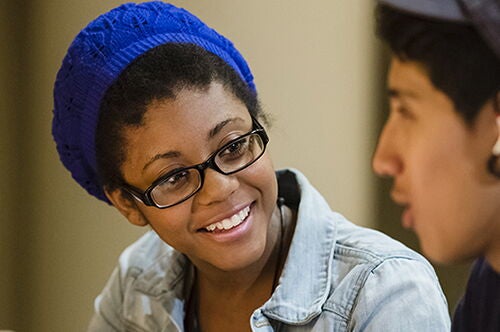
African American studies explores the life and culture of African American peoples and their African Diaspora relationships, patterns, and ties. Through this major, you'll join a new generation of leaders committed to public engagement, a diverse democratic society, and social justice.
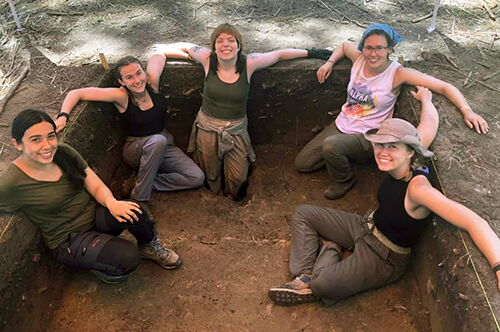
Anthropology is the study of human biological and cultural processes. Topics include criminality, law, and social justice; forensic anthropology; heritage and museums; science and technology; politics and power; language and communication; and health, medicine, and wellness.
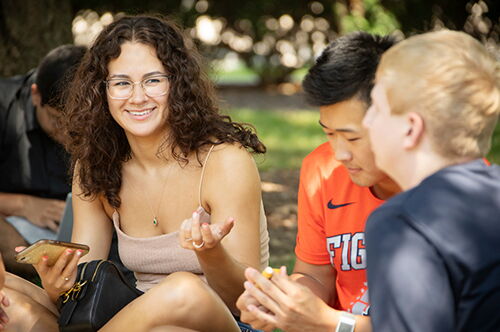
A major in Asian American studies looks at race, gender, sexuality, diversity, citizenship, and globalization. You'll gain knowledge in theory and issues of the United States and Asian American history and culture.

Astronomy is the study of celestial objects, such as stars, planets, moons, comets, nebulae, galaxies, and galaxy clusters. It is the study of the physics, chemistry, and evolution of the universe and everything within it. You'll learn analytical skills to apply understanding to the universe.
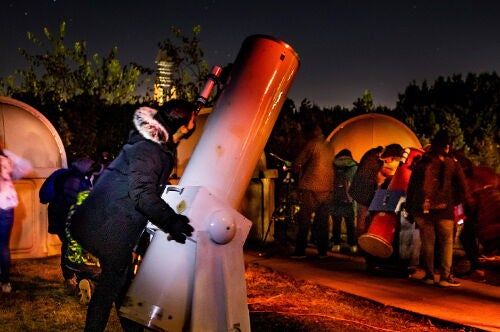
The field of astronomy is being transformed by the advent of large astronomical data sets. When you major in astronomy + data science, you'll learn how to work with modern large data sets using current computational and statistical methods and apply the information to our universe.
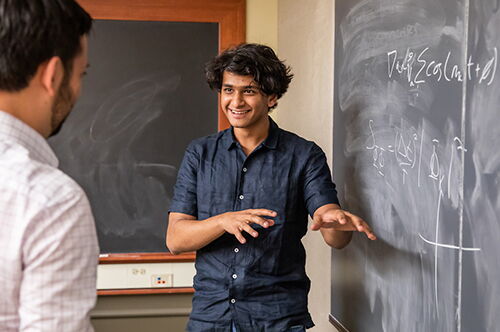
Astrophysics is the study of how the universe works by applying the methods and principles of physics. Astrophysicists study some of the biggest questions known today, from stars and planets to black holes and dark energy. When you major in astrophysics, you'll understand the universe and our place in it.
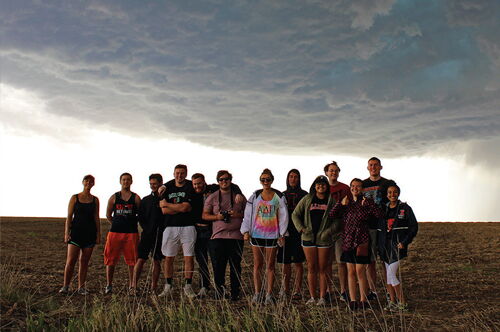
Atmospheric sciences focuses on cutting-edge technology and methods to study Earth's atmosphere with a goal of understanding and predicting the behavior of its weather and climate. You'll solve complex and computational problems that simultaneously develop critical and analytical thinking skills.
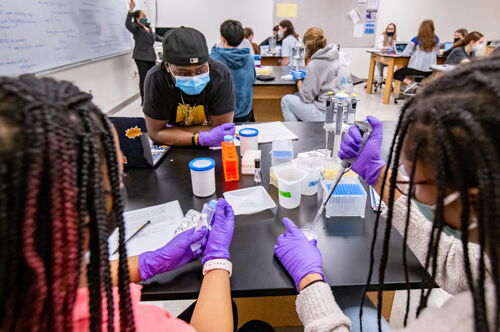
Biochemistry encompasses the biological sciences, physics, and chemistry. With a biochemistry degree, you can work in pharmaceuticals and biotechnology, medicine, patent law, scientific public policy, scientific journalism, and more.
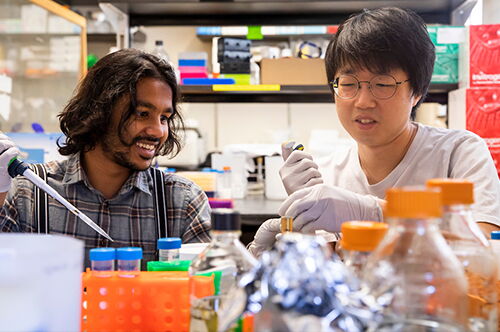
Students in biology can choose paths in integrative biology or molecular & cellular biology. Integrative biology is the study of life, from the level of molecules and cells to that of global ecosystems. MCB is the study of living organisms through the understanding of basic molecular and cellular structure and function.
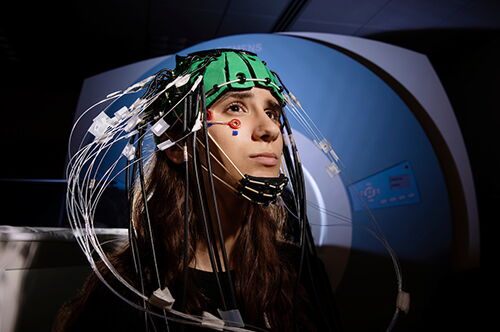
Brain & cognitive science majors make use of discoveries from a number of different disciplines, including psychology, neuroscience, computer science, linguistics, philosophy, and anthropology, and has applications to the development of technology in education, health, language sciences, and design.
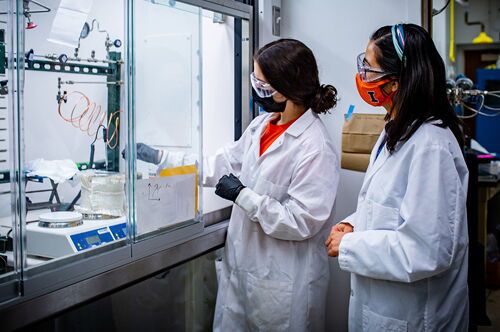
Chemical engineering is the study and practice of transforming substances at large scales for the tangible improvement of the human condition. Chemical engineering students develop knowledge in physics, math, and chemistry; learn about momentum transfer, separations, and reactor design; and apply this knowledge to real-world projects in lab and design classes
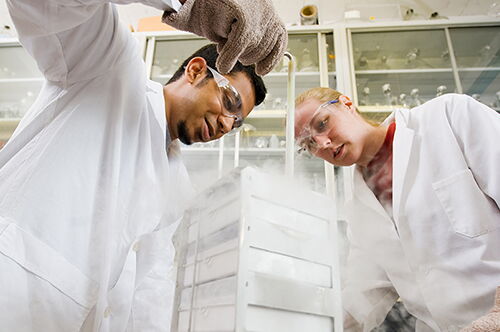
Chemistry offers a wide variety of coursework, research, and experiences for those students interested in pursuing careers in industry, graduate school, environmental studies, medical fields, or education. You'll acquire research, analytical, and teamwork skills to tackle a variety of scientific problems in diverse environments.
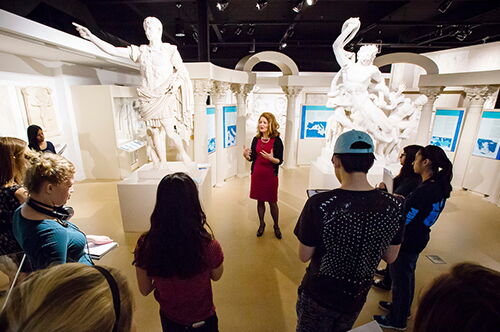
A major in classics involves the study of the languages, culture, history, and thought of the civilizations of ancient Greece and Rome. You'll study literature (epic, drama, historical writing, and much more), the history and archaeology of the Greek and Roman Mediterranean, philosophy (both ancient and modern), and linguistics.
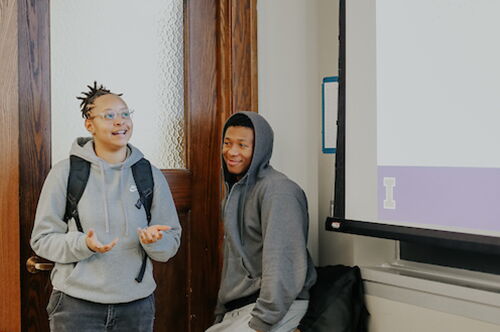
Students in communication study the use and impact of communication messages in human interaction. You'll develop knowledge in oral and written communication, critical thinking, problem solving, interpersonal relations, and more.
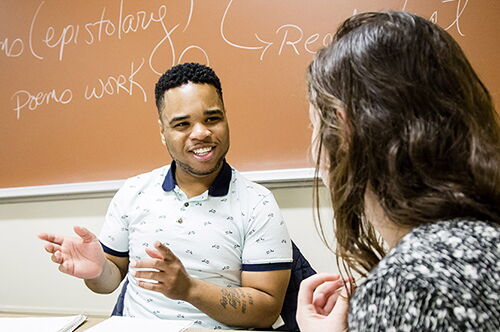
Comparative & world literature offers exciting and innovative ways to approach comparative literary and cultural studies. You'll learn about and compare literary and cultural traditions, often studied in the original languages.
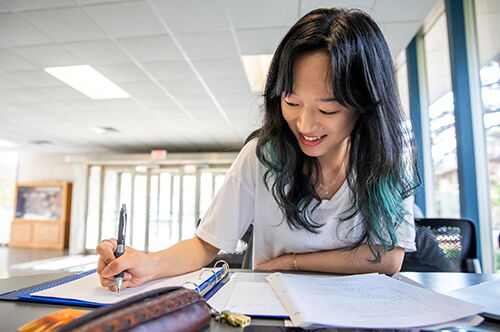
Through a combination of small writing workshops and courses in the study of literature, students in creative writing hone their critical and analytic skills and develop an individual voice as they produce original work in fiction, poetry, and creative nonfiction.

In CS + anthropology you will gain the knowledge necessary to use computer, social, and behavioral sciences within larger cultural questions of globalization, community, security, the ethics of privacy, social transformation, and social justice.
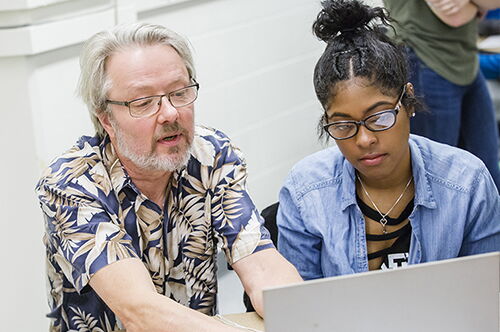
In CS + astronomy you'll combine the study of computer science with training in astronomy to gain novel perspectives in interdisciplinary work, such as data visualization, data mining, data design and modeling, astrophysical and numerical simulations, and image processing.
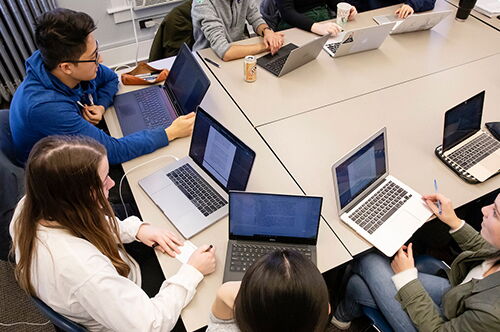
CS + chemistry combines the study of computer science with training in chemistry to gain novel perspectives in interdisciplinary work that prepares students for a variety of careers. These specializations may include analysis of experimental imaging data to visualization of in vivo chemical reactions.

As a CS + economics major, you'll develop skills in both disciplines through the opportunity to learn a variety of economic analytical skills, both theoretical and empirical, as well as computational skills.
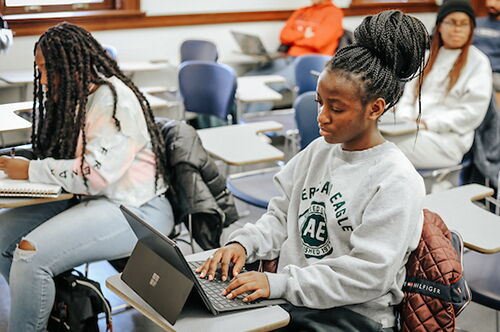
Students in CS + geography and geographic information science learn about cutting-edge geospatial data and tools for analyzing environmental and social issues while developing advanced programming and computing skills.

CS + linguistics brings together students and faculty interested in various aspects of the computer and language relationship – for example, studying the cognitive aspects of natural languages and endowing computers with understanding of spoken and written natural language.
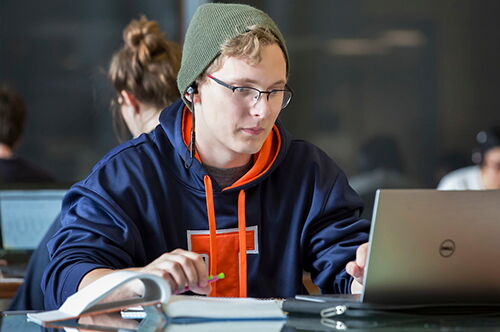
CS + philosophy prepares students to tackle modern questions related to ethics, logic, and privacy, especially in fields of artificial intelligence and security in a digital age.
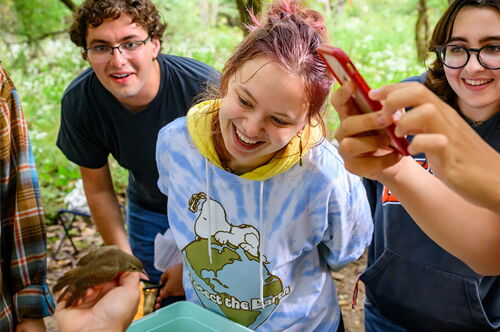
Changes in the Earth's environment, societies, and economy will define the 21st century. Earth, society, & environmental sustainability allows you to focus on policy and social science, technology, and natural science.
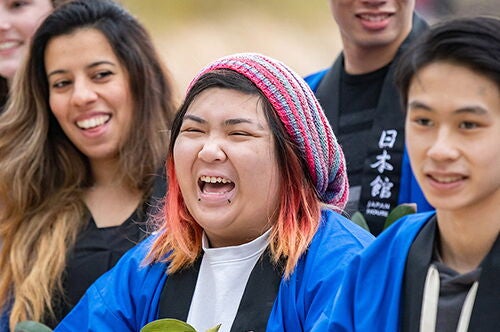
Studying East Asian languages & cultures will give you a firm competence in an East Asian language, an in-depth knowledge of East Asian cultures through multiple disciplines, and more advanced knowledge of the region through research and writing in small seminar courses.
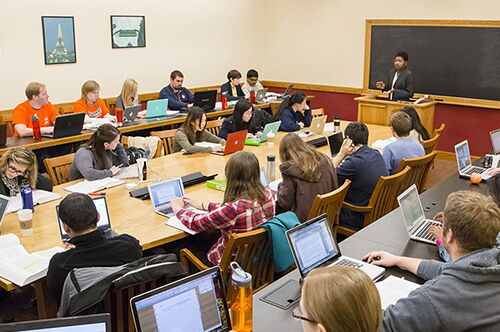
Econometrics & quantitative economics provides students with a curriculum consisting of economics, statistics, mathematics, and computer science. You'll learn advanced data analysis to answer big economic questions.
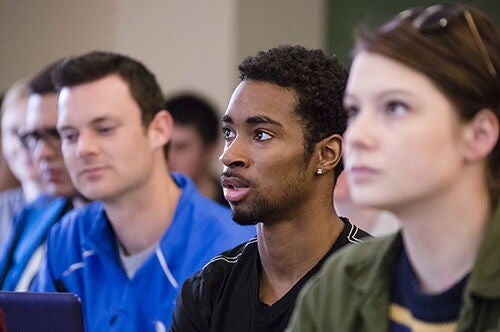
Economics is concerned with the creation, consumption, and transfer of wealth. Economic methods can be used to study all kinds of issues, including natural resource use, human capital development, government policy, and health care markets.
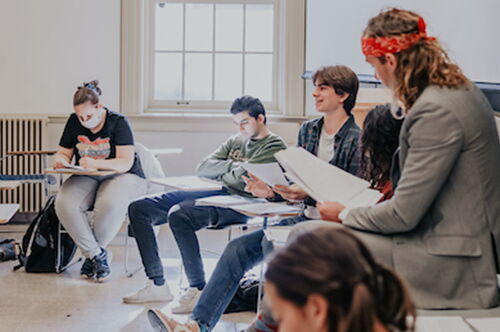
The close study of literature, text, and culture teaches students to analyze key social and artistic issues as they emerge through fiction, drama, poetry, film, and essays. As an English major, you will acquire the professional writing skills to explore complex problems and work toward solutions.
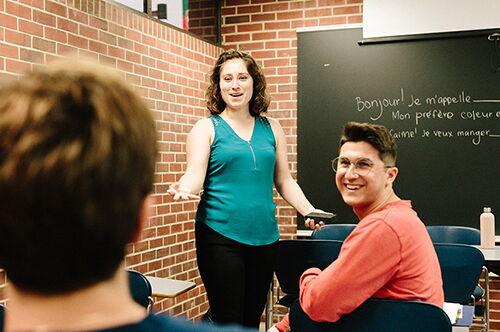
Students in French study language and culture through literature, critical theory, the study of civilization, cinema, theoretical and applied linguistics, and computer-assisted teaching. A teaching option is also available in French.
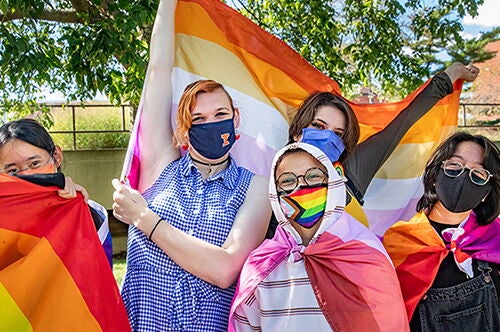
Students in gender & women's studies explore, analyze, and challenge the ways in which gender shapes people's lives. You'll learn the skills you need to initiate change and work for justice while developing communication and critical thinking skills.
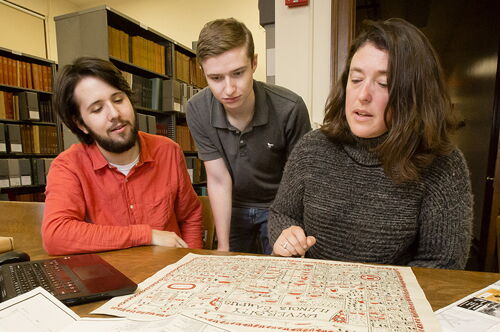
Geography & geographic information science combines physical science, social science, and geospatial technology to study people, places, and the environment. You'll learn to analyze spatial processes and understand perspectives on place and space.
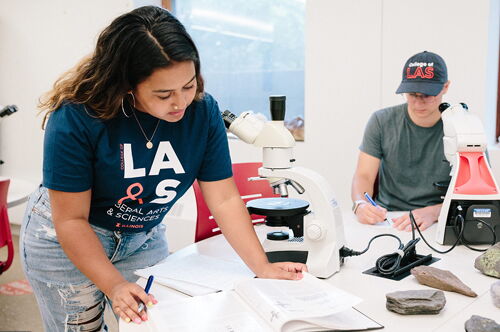
In geology, you'll study how the solid Earth operates from the surface to the deep interior, as well as its 4.6 billion year history. Geology helps with societal issues such as environmental impacts from mining activities, discovering natural resources, identifying natural hazards, and more.
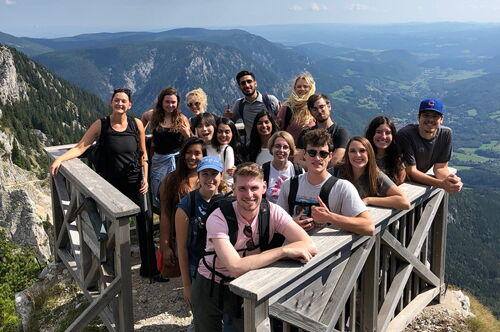
In Germanic studies you'll receive solid training in all aspects of German and Scandinavian languages and an in-depth understanding of the cultures expressed in these languages. An option in German teaching is also available.
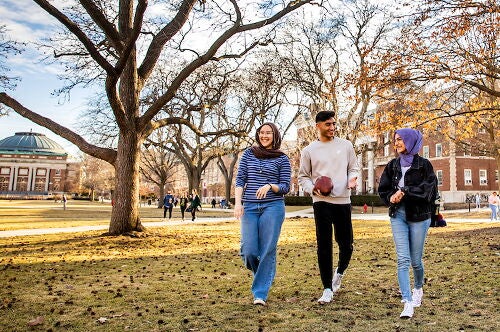
LAS global studies is an interdisciplinary major that allows students to focus on contemporary worldwide issues. You'll develop important skills and research abilities, advanced language proficiency, and be able to study abroad.
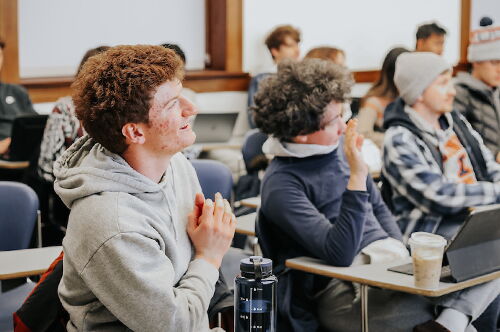
History students learn how to understand the past, grasp its relationship to the present, and confront the greatest challenges of our time. You'll master research skills, critical thinking, and writing. A secondary education option in social science and the teaching of history is also available.
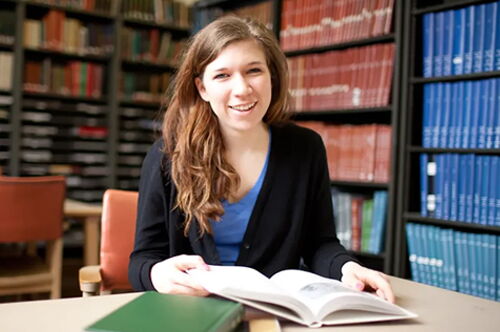
History of art majors learn to analyze and interpret visual cultures from around the globe—fundamental skills in a world increasingly reliant on visual communication and intercultural exchange. A history of art degree will provide you with visual, verbal, research, and critical skills applicable to any number of careers.
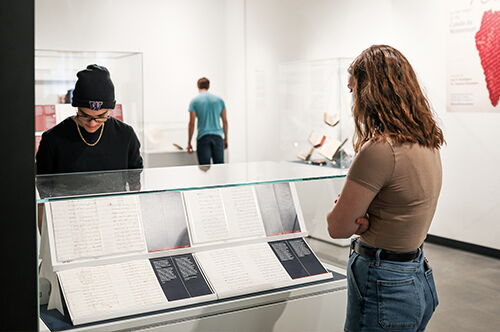
Choose a focus in Jewish studies or Medieval studies. In Jewish studies, you'll learn gain knowledge of the world through the study of Jewish cultures, history, literatures, and religion. In medieval studies, you'll learn about medieval cultures across the world, including periods and movements, institutions, material culture, ideas, beliefs, and values.
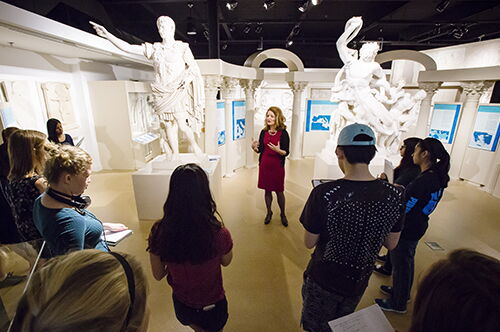
Italian is an interdisciplinary and flexible major for those interested in Italian culture, Mediterranean societies in a global context, and the European tradition in the face of globalization. You'll gain linguistic and cultural skills to understand the role of Italian culture.
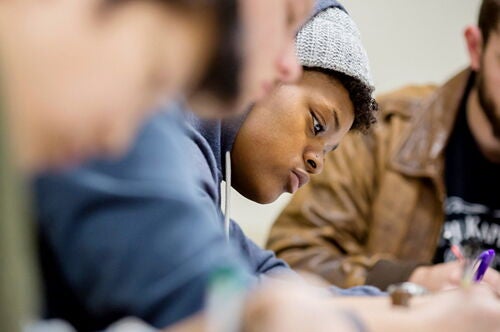
Latin American studies is an interdisciplinary major that explorations the major area of the Americas. As a Latin American studies student, you'll have a curriculum that is in-depth, integrative, cross-disciplinary, and spans across various perspectives.
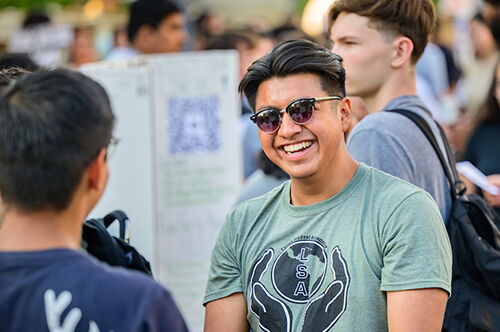
Latina/Latino studies focuses on the study of Latin American origin populations in the United States. The major provides students with the skills they need to be active and successful participants in our multi-racial, multi-cultural democracy.
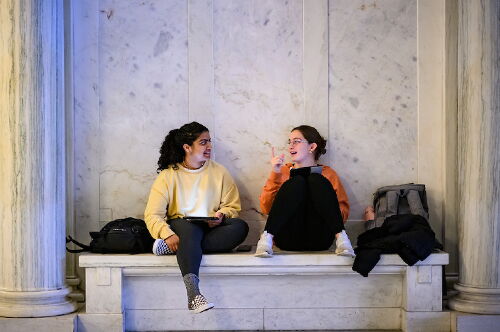
Linguistics majors focus on how languages are structured and used, and how they change through time. Explore topics including psycholinguistics, sociolinguistics, syntax, semantics, pragmatics, morphology, phonology, phonetics, and computational linguistics.
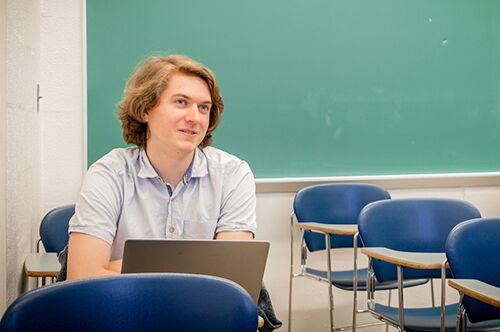
Linguistics + TESL will prepare you to teach English as an additional language in international, public, and private schools outside the country, as well as work for international English language teaching, publishing, and testing organizations.
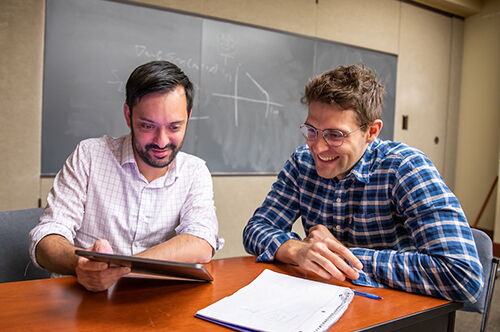
The mathematics & CS major is designed for students who want a strong foundation in computer science, coupled with significant advanced coursework in mathematics.
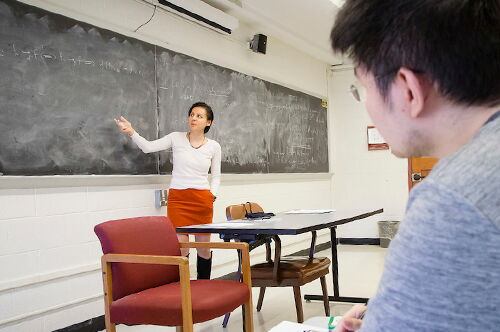
Students in mathematics acquire a strong foundation in many areas of mathematics plus the opportunity to specialize in applied math, operations research, teaching, or preparation for graduate studies with advanced honors courses.
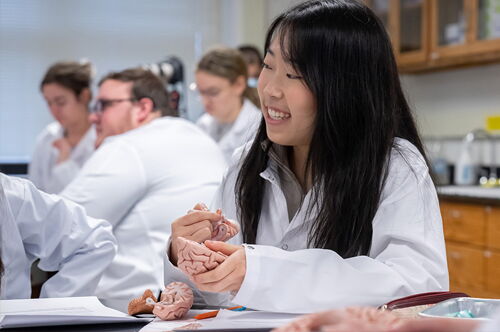
Neuroscience explores the biological, chemical, and physical processes behind the complex functions performed by our brain and nervous system. You’ll take innovative courses and develop laboratory skills while becoming an expert on the brain.
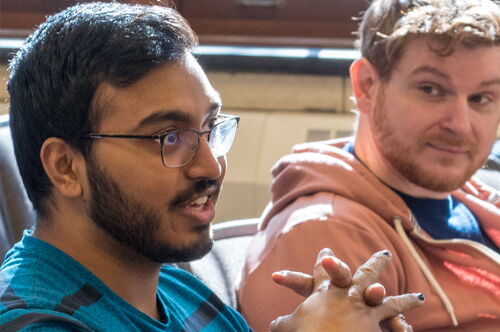
Philosophy is the oldest, broadest, and most fundamental body of inquiry investigating questions having to do with the understanding of ourselves and whatever else there may be; the nature of various forms of knowledge and experience; and ethical issues and problems of value.
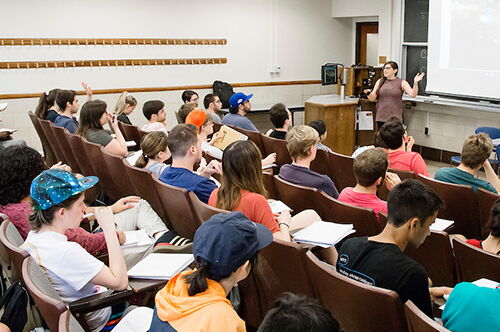
Political science studies how groups of people make decisions and manage disagreements about policy within nations, between nations, and in non-governmental settings. You'll wrestle with important questions about power, conflict, cooperation, representation, and diversity in the U.S. and across the world.
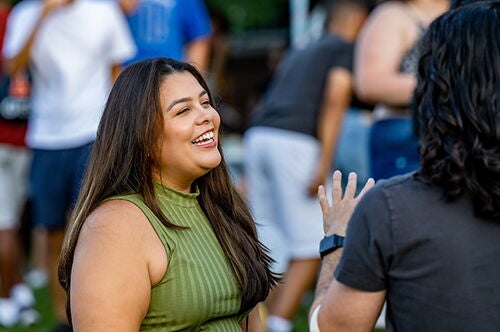
Portuguese majors study the world's sixth most spoken language in order to build familiarity with Brazil and other Portuguese-speaking countries. They study a wide range of topics, such as globalization; ethnicity, race, and gender; migration and nation-making; history; and more.

Psychology majors study human and animal behavior, ranging from the study of single cells to the individual person, from small groups to communities. You'll acquire skills in statistical analysis, understanding of the biological processes of behavior, and acquisition of research techniques and methodologies.
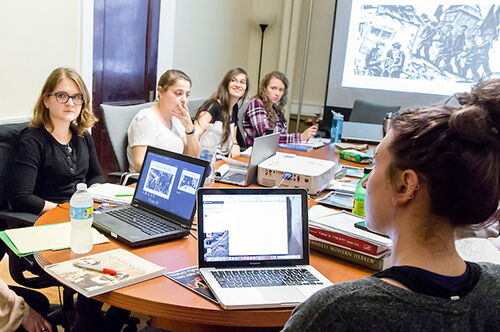
A major in religion allows students to study diverse religious traditions from a variety of disciplinary perspectives. Primary areas of study are offered in: Buddhism, Christianity, Hinduism, Islam, Judaism, philosophy of religion, religion in America, and individually designed areas of study.
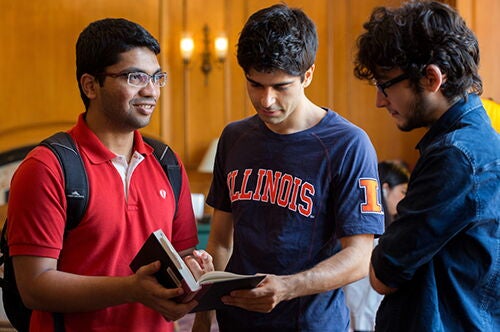
Russian, East European, & Eurasian studies allows students to study an important and complex area of the world by drawing together the approaches of different disciplines while building knowledge in a single discipline.
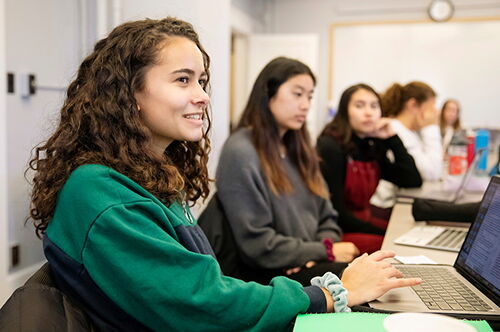
Slavic studies includes the study of the language, literature, and culture of Russia. Students can concentrate in Czech studies; Polish studies; Russian language, literature, and culture; South Slavic studies; or Ukrainian studies.
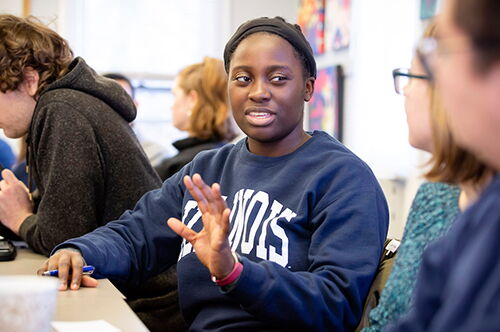
Large-scale societal change begins with individuals like you — hungry for knowledge and ready to make a real difference. In sociology, you'll study the inner workings of society with a focus on either inequalities or global sociology.
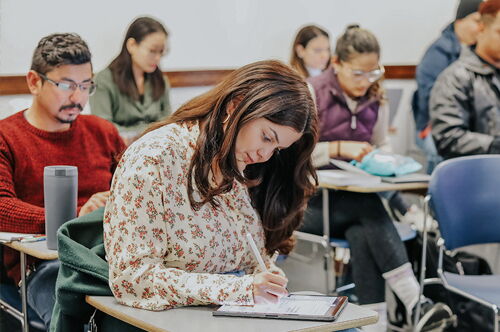
By majoring in Spanish, you’ll enjoy courses that will improve your Spanish, increase your knowledge of Hispanic cultures, and prepare you to thoughtfully engage in a changing world where Spanish is a major language.
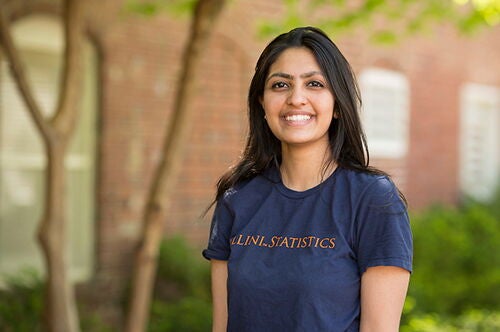
Statistics focuses on the science of modeling, summarizing, and analyzing data, and of using mathematics and computing tools to make predictions and decisions in the face of uncertainty. Statistical methods are applicable in any field involving quantitative measurement.

Statistics & computer science is designed for students who would like a strong foundation in computer science and advanced coursework in statistics. Grads work for employers nationwide who need a strong IT workforce and well-trained computer scientists.





